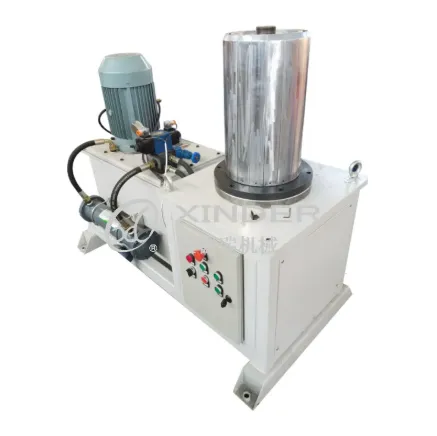-
 8613931787312
8613931787312 -
 Botou Industrial Zone on the east side of National Highway 104, Botou City, Hebei Province
Botou Industrial Zone on the east side of National Highway 104, Botou City, Hebei Province
- Afrikaans
- Albanian
- Amharic
- Arabic
- Armenian
- Azerbaijani
- Basque
- Belarusian
- Bengali
- Bosnian
- Bulgarian
- Catalan
- Cebuano
- Corsican
- Croatian
- Czech
- Danish
- Dutch
- English
- Esperanto
- Estonian
- Finnish
- French
- Frisian
- Galician
- Georgian
- German
- Greek
- Gujarati
- haitian_creole
- hausa
- hawaiian
- Hebrew
- Hindi
- Miao
- Hungarian
- Icelandic
- igbo
- Indonesian
- irish
- Italian
- Japanese
- Javanese
- Kannada
- kazakh
- Khmer
- Rwandese
- Korean
- Kurdish
- Kyrgyz
- Lao
- Latin
- Latvian
- Lithuanian
- Luxembourgish
- Macedonian
- Malgashi
- Malay
- Malayalam
- Maltese
- Maori
- Marathi
- Mongolian
- Myanmar
- Nepali
- Norwegian
- Norwegian
- Occitan
- Pashto
- Persian
- Polish
- Portuguese
- Punjabi
- Romanian
- Russian
- Samoan
- scottish-gaelic
- Serbian
- Sesotho
- Shona
- Sindhi
- Sinhala
- Slovak
- Slovenian
- Somali
- Spanish
- Sundanese
- Swahili
- Swedish
- Tagalog
- Tajik
- Tamil
- Tatar
- Telugu
- Thai
- Turkish
- Turkmen
- Ukrainian
- Urdu
- Uighur
- Uzbek
- Vietnamese
- Welsh
- Bantu
- Yiddish
- Yoruba
- Zulu
Optimizing Tube Expansion with Hydraulic and Mechanical Expansion Machines
In industries such as heat exchangers, boilers, and condensers, tube expansion plays a critical role in ensuring the reliability and efficiency of equipment. Hydraulic expansion machines, mechanical expanders, and hydraulic tube expansion machines are essential tools that help achieve the precise and durable tube connections necessary for optimal performance. This article delves into the key technologies used in tube expansion, comparing hydraulic and mechanical expanders, and exploring their applications in modern manufacturing.

What is a Hydraulic Expansion Machine?
A hydraulic expansion machine is a piece of equipment that utilizes hydraulic pressure to expand metal tubes, typically for applications such as heat exchangers or condensers. The machine works by inserting an expander tool into a tube and applying controlled hydraulic pressure to gradually widen the tube, ensuring a tight, leak-proof connection between the tube and the tube sheet or fitting.
Hydraulic expansion machines offer precise control over the expansion process, making them ideal for applications where uniformity and strength are essential. The hydraulic system allows for smooth and consistent expansion without deforming the tube, ensuring that the final connection meets the required pressure and integrity standards. These machines are commonly used in industries where high-performance and long-lasting tube connections are critical.
Hydraulic Tube Expansion Machine: Specialized for Tubes
A hydraulic tube expansion machine is a specialized version of the hydraulic expansion machine, specifically designed for expanding tubes used in various heat transfer applications. These machines are built to handle a range of tube materials, such as copper, steel, and aluminum, offering excellent control over tube expansion.
The hydraulic tube expansion machine ensures that the tubes are expanded to the exact diameter required, providing a tight, permanent seal between the tube and the tube sheet. This is crucial in industries like power generation, oil and gas, and HVAC, where even slight leaks can compromise the system’s efficiency and safety.
Mechanical Expander: A More Manual Approach
While mechanical expanders do not rely on hydraulic pressure, they are still commonly used in tube expansion applications. Mechanical expanders work by manually rotating a cone-shaped tool inside the tube, gradually increasing its diameter. These tools are simple to use and do not require the complexity of hydraulic systems, making them suitable for applications where high precision is not as critical.
Although mechanical expanders are less versatile compared to hydraulic machines, they are often used in smaller-scale operations or for expanding tubes in systems where moderate pressure and expansion are sufficient. They are also more portable and easier to maintain, making them a popular choice in various industries.
In conclusion, both hydraulic expansion machines and mechanical expanders play essential roles in the tube expansion process, with hydraulic machines offering greater precision and power for high-demand applications. Understanding the strengths and uses of each tool allows manufacturers to select the right equipment for their specific needs, ensuring strong, reliable tube connections in all types of industrial systems.
-
The Rise of Laser Welding: Precision Meets Power in Modern MetalworkNewsAug.06,2025
-
Streamlining Industrial Packaging: The Power of Barrel Production LinesNewsAug.06,2025
-
Revolutionizing Metal Joining: The Power of Automatic Seam Welding MachinesNewsAug.06,2025
-
Powering Industrial Innovation: The Role of Pipe and Tube Machinery in Modern ManufacturingNewsAug.06,2025
-
Exploring the World of Resistance Welding: Equipment, Manufacturers, and Pricing InsightsNewsAug.06,2025
-
Advancing Container Manufacturing: The Role of the Modern Can Welding MachineNewsAug.06,2025
-
Understanding Automatic Seam Welding Machines: A Game Changer in Welding TechnologyNewsJul.18,2025
-
 Pneumatic Handle Welding MachineSep . 13, 2024
Pneumatic Handle Welding MachineSep . 13, 2024 -
 Fully Automatic Kaiping Production LineOct . 17, 2024
Fully Automatic Kaiping Production LineOct . 17, 2024 -
 Fully Automatic Metal Bucket Lifting HeadphonesSep . 14, 2024
Fully Automatic Metal Bucket Lifting HeadphonesSep . 14, 2024

